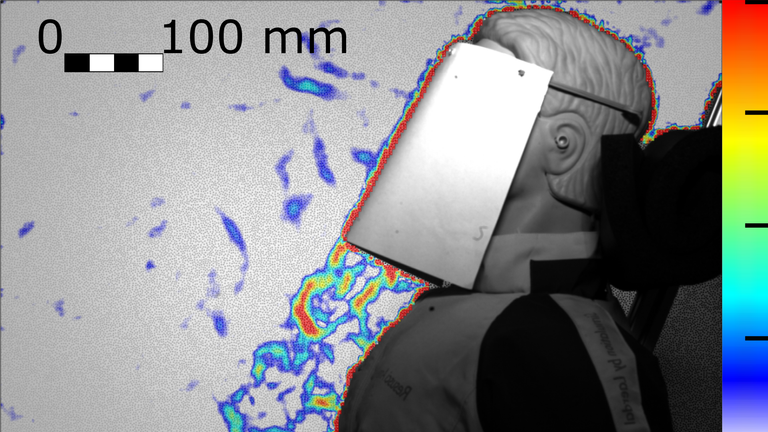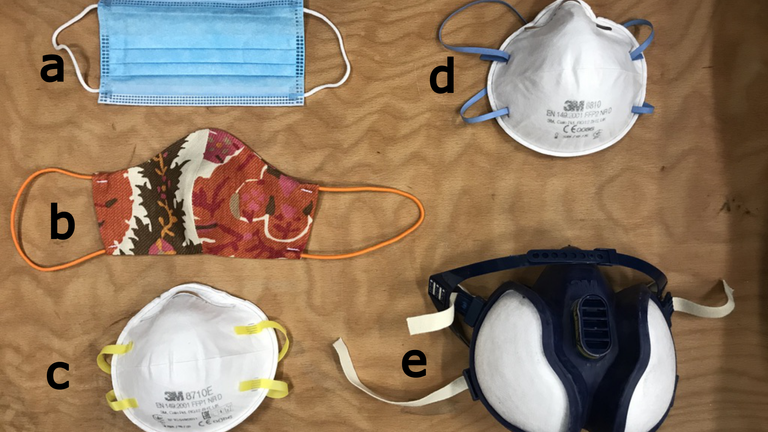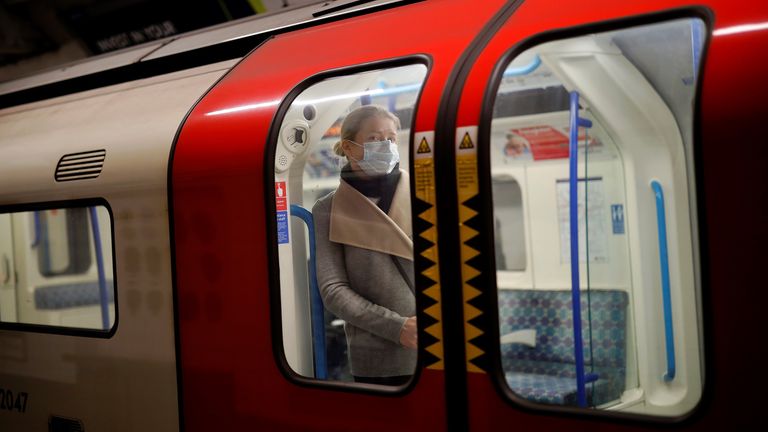Homemade face masks can help limit the spread of coronavirus – but they do have downsides, according to a new study.
Seven types of face masks were put to the test by the University of Edinburgh, including surgical masks, respirators, lightweight and heavy-duty face shields, and handmade masks.
Aside from those with a valve, all of the face coverings were found to reduce the forward distance travelled by an exhaled breath by at least 90%.
Measurements were taken from people wearing different face coverings from people standing or lying down, as well as from a manikin connected to a cough-simulating machine.
A special type of imaging was used that enables scientists to detect the distance and direction travelled by the air that is expelled when someone coughs or breathes heavily.
Advertisement
Although the surgical and handmade masks did limit the forward flow of an outward breath, they also generated "far-reaching leakage jets to the side, behind and above and below" – with "intense backward jets" generated whenever someone was coughing or breathing heavily.
Full-face shields worn without a mask enabled "a strong downward jet" to be released.
More from Covid-19
Respirator masks, commonly used by workers exposed to fine dust, were also found to offer protection – but valves on these masks designed to make breathing easier "could potentially allow infectious air to spread considerable distances in front".

Only masks that form a tight seal with the face were found to prevent the escape of virus-laden fluid particles, the researchers said.
When it comes to making a mask by hand, Britons are being urged to "ensure it seals gaps around the face, but be careful because making something that obstructs the mouth and nose is always dangerous".

The University of Edinburgh says its findings could help steer official guidance on wearing masks to help tackle COVID-19, which can be spread in small droplets of water in people's breath.
Dr Ignazio Maria Viola, who co-ordinated the project, said he had "generally been impressed by the effectiveness of all the face coverings we tested".
He told Sky News that, in principle, scarves offer similar protection in limiting the spread of coronavirus – although they are not ideal and "might not be very popular in the summer".

"Firstly, you need to have multiple layers to make it effective, and second it is important to seal all gaps (hence it should be tightish) otherwise air will be projected at high speed in directions that we are not aware of and that we cannot control. I also guess that it should be washed after every use," he said.
Dr Viola warned any new decisions on policy should bear in mind that people could end up having a false sense of security when wearing face coverings, meaning they fail to observe social distancing.
[contf]
[contfnew]

sky news
[contfnewc]
[contfnewc]





